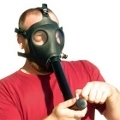Enchanter--well, you know you have sleep apnea, and they ran a titration. That's settling some of the issues that have been worrying you.
Be sure to do what Robysue recommended in the 4th post in this thread. That was stellar advice.
It's a fact. I have Sleep Apnea.
Re: It's a fact. I have Sleep Apnea.
_________________
Machine: ResMed AirSense™ 11 AutoSet™ CPAP Machine
Mask: DreamWear Nasal CPAP Mask with Headgear
Software: OSCAR
Machine: ResMed AirSense™ 11 AutoSet™ CPAP Machine
Mask: DreamWear Nasal CPAP Mask with Headgear
Software: OSCAR
Ambien fears
Let's not overblow the risks of Ambien. If you're taking it often, there's a lot more risk that you'll do something weird and hurt yourself. One night, in the lab, under observation, is a lot less risky.
Whether it affects your test results is another question entirely.
Whether it affects your test results is another question entirely.
_________________
| Mask: Swift™ FX Nasal Pillow CPAP Mask with Headgear |
| Humidifier: S9™ Series H5i™ Heated Humidifier with Climate Control |
| Additional Comments: Also SleepyHead, PRS1 Auto, Respironics Auto M series, Legacy Auto, and Legacy Plus |
Please enter your equipment in your profile so we can help you.
Click here for information on the most common alternative to CPAP.
If it's midnight and a DME tells you it's dark outside, go and check for yourself.
Useful Links.
Click here for information on the most common alternative to CPAP.
If it's midnight and a DME tells you it's dark outside, go and check for yourself.
Useful Links.
Re: Ambien fears
A big +1archangle wrote:Let's not overblow the risks of Ambien. If you're taking it often, there's a lot more risk that you'll do something weird and hurt yourself. One night, in the lab, under observation, is a lot less risky.
Yes, this is another question.Whether it affects your test results is another question entirely.
But one thing that has to be factored into the decision on whether to take an Ambien for a sleep test is the risk of not getting sufficient sleep. If the risk of not getting enough sleep is very, very high, then taking the Ambien in an effort to get sufficient sleep-based data may easily outweigh the risk that data gathered during sleep is affected to the point of being unreliable.
And I'll also throw this in: From the reading that I've done, the way that Ambien might affect the results on a sleep test are not intuitively clear:
- Ambien might make OSA (a bit) worse since Ambien, like many other hypnotics, can increase the risk of the upper airway collapsing.
- Ambien might change the underlying sleep architecture a bit, and so if the OSA is primarily REM-based, that could affect the test results.
- Ambien may reduce the number of transitions between WAKE and Stage1/Stage2 sleep, particularly at the beginning of the night. And if the person's problem is primarily a sleep transition problem (usually with CSA rather than OSA), then smoothing the transition from WAKE to SLEEP may affect the test results by minimizing or eliminating the underlying cause of the central apneas.
Improvement of Idiopathic Central Sleep Apnea with Zolpidem published in Journal of Clinical Sleep Medicine back in 2009. This is a non-blind case study, and the authors point out that as such their results are not sufficient to recommend using Zolpidem as a treatment of idiopathic central sleep apnea, but also point out that their results are strong enough to warrant pursuing additional investigation as to whether Zolpidem might be an effective treatment for idiopathic central sleep apnea.
The Treatment of Central Sleep Apnea Syndromes in Adults: Practice Parameters with an Evidence-Based Literature Review and Meta-Analyses published in Sleep in 2012. As a meta-analysis, this is a statistical study of previously studies published in the literature. Aggregating data from multiple studies together is not an easy task and meta-analyses are important because they can take studies with weak or contradictory results and sort out the meaning in a statistical sense. Among the many recommendations for the treatment of central sleep apnea made in this study is this:
In other words, there's enough (weak) evidence in the literature to consider treating central sleep apnea with zolpidem (Ambien) when the patient doesn't have risk factors for respiratory depression.The use of zolpidem and triazolam may be considered for the treatment of primary CSAS only if the patient does not have underlying risk factors for respiratory depression. (OPTION)
_________________
| Machine: DreamStation BiPAP® Auto Machine |
| Mask: Swift™ FX Nasal Pillow CPAP Mask with Headgear |
| Additional Comments: PR System DreamStation and Humidifier. Max IPAP = 9, Min EPAP=4, Rise time setting = 3, minPS = 3, maxPS=5 |










